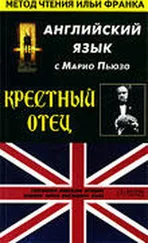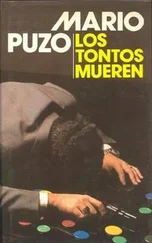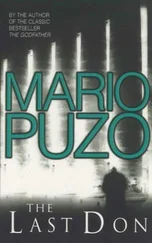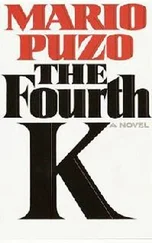Shaking her head at her own madness, yet with pride, she often told the story.
There had come a time when her father, with stern pity, told her, his favorite daughter, that she could not hope for bridal linen. The farm was too poor. There were debts. Life promised to be even harder. There it was. There could be found only a husband witless with love.
In that moment she had lost all respect for her father, for her home, for her country. A bride without linen was shameful, shameful as a bride rising from an unbloodied nuptial bed; worse, for there could be no recourse to slyness, no timing of the bridal night near the period of flood. And even that men had forgiven. But what man would take a woman with the stigma of hopeless poverty?
Only the poor can understand the shame of poverty, greater than the shame of the greatest sinner. For the sinner, vanquished by his own other self, is in one sense the victor. But the poor are truly vanquished: by their world, by their padrones, by fortune and by time. They are beggars always in need of charity. To the poor who have been poor for centuries, the nobility of honest toil is a legend. Their virtues lead them to humiliation and shame.
But Lucia Santa was helpless, though her sulky, adolescent rage endured. Then a letter from America; a boy from the neighboring farm, her companion when they were both little children, wrote and asked her to join him in a new land. It was all done correctly through both fathers. Lucia Santa tried to remember the boy’s face.
And so one sunny Italian day Lucia Santa and two other village maidens were escorted to the town hall and then to the church by their weeping parents, aunts, and sisters. The three girls went on board ship, brides by proxy, sailing from Naples to New York, by law Americans.
IN A DREAM Lucia Santa entered a land of stone and steel, bedded that same night with a stranger who was her legal husband, bore that stranger two children, and was pregnant with the third when he carelessly let himself be killed in one of those accidents that were part of the building of the new continent. She accepted all this without self-pity. She lamented, true, but that was not the same thing; she only begged fate for mercy.
So then, a pregnant widow, still young, with no one to turn to, she never succumbed to terror, despair. She had an enormous strength, not unusual in women, to bear adversity. But she was not a stone. Fate did not make her bitter; that was left to friends and neighbors—these very neighbors who so intimately shared the summer night.
Ahh, the young wives, the young mothers, all the other young Italian women in a strange land. What cronies they were. How they ran to each other’s apartments, up and down the stairs, into the adjoining tenements. “ Cara Lucia Santa, taste this special dish”—a platter of new sausage, Easter pie with wheat germ and clotted cheese and a crust glazed with eggs, or plump ravioli for a family saint’s day, with a special meat and tomato sauce. What flutters, what compliments and cups of coffee and confidences and promises to be godmother to the yet-to-be-born infant. But after the tragedy, after the initial pity and condolences, the true face of the world showed itself to Lucia Santa.
Greetings were cold, doors were shut, prospective godmothers disappeared. Who wished to be friendly with a young, full-blooded widow? Husbands were weak, there would be calls for assistance. In the tenements life was close; a young woman without a man was dangerous. She could draw off money and goods as the leech draws blood. They were not malicious, they showed only the prudence of the poor, so easy to mock when there is no understanding of the fear which is its root.
One friend stood fast, Zia Louche, an old, childless widow, who came to help, stood godmother when the fatherless Vincenzo was born and bought her godson a beautiful gold watch when he was confirmed so that Lucia Santa could hold up her head! for such a magnificent present was a mark of respect and faith. But Zia Louche was the only one, and when mourning time had passed Lucia Santa saw the world with new and wiser eyes.
Time healed the wounds and now they were all friends again. Perhaps—who knows?—the young widow had been too harsh in her judgment, for these same neighbors, true, in their own self-interest, helped her find a second husband who would feed and clothe her children. There was a marriage in church. These same neighbors gave her a glorious wedding-night feast. But Lucia Santa never let the world deceive her again.
AND SO ON this heavy summer night, with her first batch of children grown and safe, her second batch of children no longer infants except for Lena, and with some money in the post office; now, after twenty years of struggle and a fair share of suffering, Lucia Santa Angeluzzi-Corbo stood on that little knoll of prosperity that the poor reach, reach with such effort that they believe the struggle is won and that with ordinary care their lives are safe. She had already lived a lifetime; the story was over.
ENOUGH. HERE CAME Zia Louche, completing the circle. Lucia Santa paid attention, prepared to enter the torrent of gossip. But she saw her daughter Octavia coming from the corner of 30th Street, past the Panettiere and his red glass box of pizza and pale tin cans of lemon ice. Then Lucia Santa lost sight of her daughter; for one blinding moment her eyes were filled by the Panettiere ’s wooden tub, brimming with red coppers and gleaming silver fishes of dimes and nickels. She felt a quick, hot surge of passionate anger that she could never possess such treasure and that the ugly baker should find fortune so kind. Then she saw the Panettiere ’s wife—old, mustached, no longer able to bear children—guarding that wooden tub of copper and silver, her wrinkled shell-lidded dragon eyes flashing fire in the summer light.
Lucia Santa felt Octavia sitting beside her on the backless chair; their hips and thighs touched. This always irritated the mother, but her daughter would be offended if she moved, so she accepted it. Seeing her daughter so oddly handsome, dressed in the American style, she gave the old crony Zia Louche a smile that showed both her pride and a hint of derisive irony. Octavia, dutifully silent and attentive, saw that smile and understood it, yet she was bewildered once again by her mother’s nature.
As if her mother could understand that Octavia wanted to be everything these women were not! With the foolish and transparent cleverness of the young, she wore a powder-blue suit that hid her bust and squared the roundness of her hips. She wore white gloves, as her high school teacher had done. Her eyebrows were heavy and black, honestly unplucked. Hopelessly she compressed the full red lips to an imaginary sternness, her eyes quietly grave—and all to hide the drowning sensuality that had been the undoing of the women around her. For Octavia reasoned that satisfying the terrible dark need stilled all other needs and she felt a frightened pity for these women enchanted into dreamless slavery by children and the unknown pleasures of a marriage bed.
This would not be her fate. She sat with bowed head, listening, Judas-like; pretending to be one of the faithful, she planned treason and escape.
Now with only women around her, Octavia took off her jacket; the white blouse with its tiny red-ribboned tie was more seductive than she could ever know. No disguise could hide the full roundness of her bust. The sensual face, crown of blue-black curls and ringlets, great liquid eyes, all mocked the staidness of her dress. With malice she could not have made herself more provocative than she did in her innocence.
Lucia Santa took the jacket and folded it over her arm, an act of love that was maternal, that meant possession and dominance. But above all an act of reconciliation, for earlier that evening mother and daughter had quarreled.
Читать дальше












